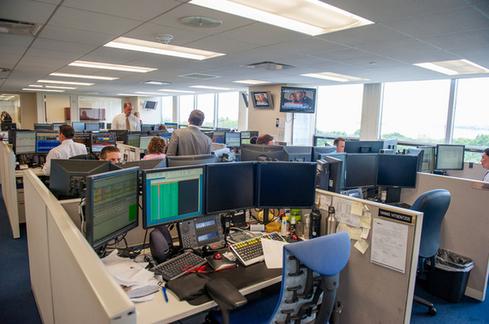03:20 PM
The Start of Another Financial Crisis
The stability of global markets could be once again threatened by another massive financial derivatives crisis, according to market participants.
Due to a loophole called the “futurization of swaps” as a result of a change in the way derivatives are packaged and sold, traders are bypassing regulations aimed at containing risk and instead, are investing more money in riskier trades.
As a result of the 2008 financial crisis and the ensuing Dodd-Frank regulation, investors are now required to set aside enough capital to cover losses on their derivatives trades.
But traders are now bypassing these margin requirements by repackaging swaps into futures. Futures are less regulated, allowing investors to take larger positions while reserving smaller amounts of cash.
Companies that operate futures exchanges say the shift from swaps to futures is a natural evolution in the marketplace and that futures exchanges have a sound track record of carefully managing risk, the Huffington Post notes.
“When you migrate to futures, you’ll be able to get much better margin utilization and therefore put up less capital,” Larry Tabb, CEO and founder of TABB Group said in a HuffPost Live panel, entitled “Another Banking Crisis?”
Underlying the risk of another major financial crisis, James Cawley, CEO of Javelin Capital Markets, noted that since futures have one fifth of the margin requirements of a swap and are therefore measured on a more advantageous risk basis for clearing houses, exchanges who haven’t properly accounted for risk could be at risk of failure, leading to a major systemic issue.
“It’s like AIG, who failed to account for the right margins in that context,” Cawley said on the HuffPost Live webcast. “You could see the same thing with clearing houses as they attempt to do the same thing for their own gain.”
From a policy standpoint, if you have private institutions that have shareholders and have to generate dividends while also having the possibility of benefiting from a government bailout in the future, there is an internal tension that will always exist, he noted.
In that case, there is little incentive for clearing houses to really try to avoid a bailout, panelists said.
“Risk needs to be appropriately managed, whether it’s a swaps contract or a futures contract in a clearing house,”Cawley warned.
A survey by Swiss bank UBS of firms in the $639 trillion swaps market found that traders expected they would eventually replace 20 to 25 percent of their swaps portfolios with futures, the Huffington Post reported.
Melanie Rodier has worked as a print and broadcast journalist for over 10 years, covering business and finance, general news, and film trade news. Prior to joining Wall Street & Technology in April 2007, Melanie lived in Paris, where she worked for the International Herald ... View Full Bio
























